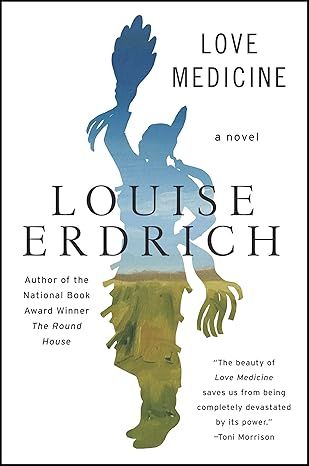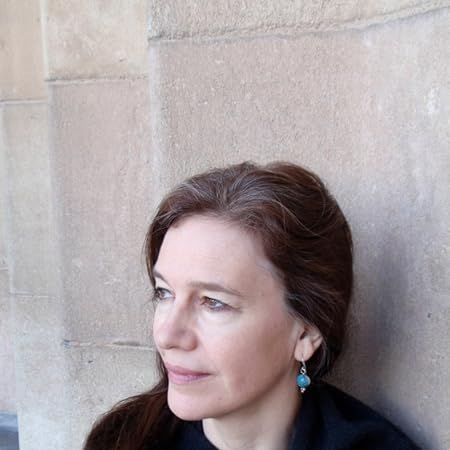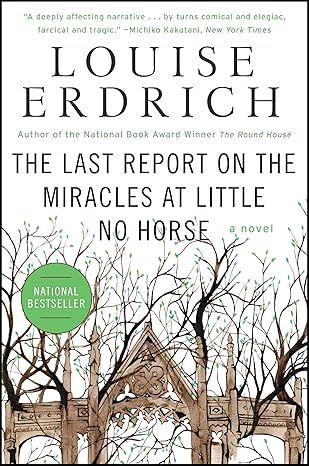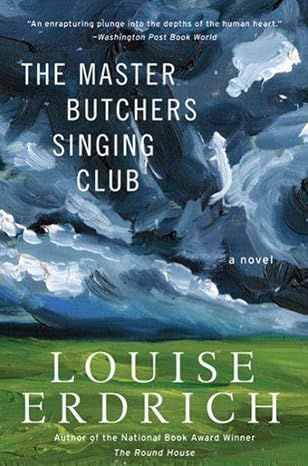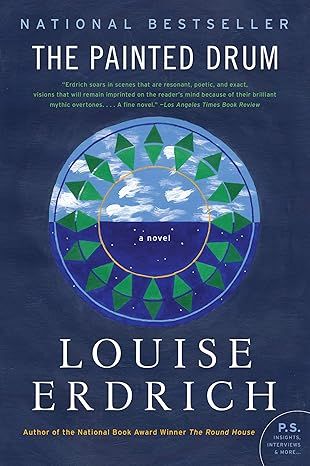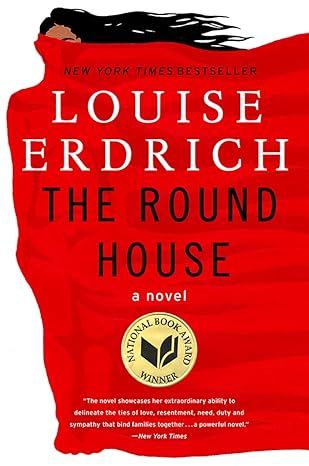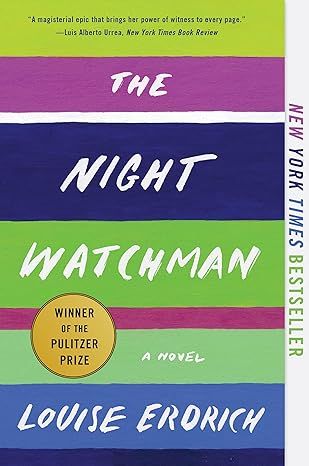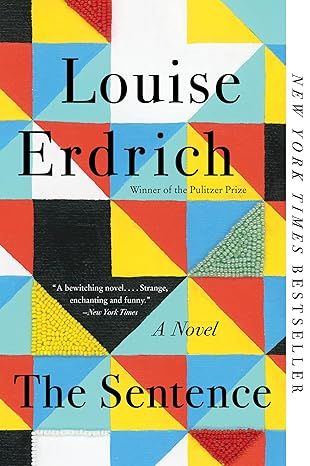Love Medicine: Newly Revised Edition (P.S.)
4.3
-
1,019 ratings
The stunning first novel in Louise Erdrich's Native American series, Love Medicine tells the story of two families, the Kashpaws and the Lamartines. Written in Erdrich's uniquely poetic, powerful style, it is a multi-generational portrait of strong men and women caught in an unforgettable drama of anger, desire, and the healing power that is love medicine.
Paperback
$11.99
Ships from
Amazon.com
Payment
Secure transaction
ASIN
0061787426
ISBN-10
0061787426
ISBN-13
978-0061787423
Print length
400 pages
Language
English
Publisher
Harper Perennial
Publication date
May 04, 2009
Dimensions
5.31 x 1 x 8 inches
Item weight
2.31 pounds
Product details
Award winners:
Editorial reviews
“We know we are in the hands of an exceptionally skilled, sensitive, observant writer … Love Medicine is the work of a tough, loving mind.” — Jonathan Yardley, Washington Post
“The beauty of Love Medicine saves us from being completely devastated by its power.” — Toni Morrison
“A masterpiece, written with spellbinding authenticity.” — Philip Roth
“Lyrical and funny, mystical and down-to-earth, Love Medicine entrances” — Christian Science Monitor
“A powerful piece of work . . . Louise Erdrich is the rarest kind of writer; as compassionate as she is sharp-sighted” — Anne Tyler
“A wondrous prose song . . . about the enduring verities of love and surviving, and these truths are revealed in a narrative that is an invigorating mixture of the cosmic and the tragic.” — New York Times Book Review
“A remarkable first novel that stares more boldly at many of the truths of Native American life in the country than any fiction I’ve read…. It is a deeply, if ironically, spirited novel.” — Chicago Sun-Times
Sample
Chapter One
The World's Greatest Fisherman (1981)
The morning before Easter Sunday, June Kashpaw was walking down the clogged main street of oil boomtown Williston, North Dakota, killing time before the noon bus arrived that would take her home. She was a long-legged Chippewa woman, aged hard in every way except how she moved. Probably it was the way she moved, easy as a young girl on slim hard legs, that caught the eye of the man who rapped at her from inside the window of the Rigger Bar. He looked familiar, like a lot of people looked familiar to her. She had seen so many come and go. He hooked his arm, inviting her to enter, and she did so without hesitation, thinking only that she might tip down one or two with him and then get her bags to meet the bus. She wanted, at least, to see if she actually knew him. Even through the watery glass she could see that he wasn't all that old and that his chest was thickly padded in dark red nylon and expensive down.
There were cartons of colored eggs on the bar, each glowing like a jewel in its wad of cellophane. He was peeling one, sky blue as a robin's, palming it while he thumbed the peel aside, when she walked through the door. Although the day was overcast, the snow itself reflected such light that she was momentarily blinded. It was like going underwater. What she walked toward more than anything else was that blue egg in the white hand, a beacon in the murky air.
He ordered a beer for her, a Blue Ribbon, saying she deserved a prize for being the best thing he'd seen for days. He peeled an egg for her, a pink one, saying it matched her turtleneck. She told him it was no turtleneck. You called these things shells. He said he would peel that for her, too, if she wanted, then he grinned at the bartender and handed her the naked egg.
June's hand was colder from the outdoors than the egg, and so she had to let it sit in her fingers for a minute before it stopped feeling rubbery warm. Eating it, she found out how hungry she was. The last of the money that the man before this one had given her was spent for the ticket. She didn't know exactly when she'd eaten last. This man seemed impressed, when her egg was finished, and peeled her another one just like it. She ate the egg. Then another egg. The bartender looked at her. She shrugged and tapped out a long menthol cigarette from a white plastic case inscribed with her initials in golden letters. She took a breath of smoke then leaned toward her companion through the broken shells.
"What's happening?" she said. "Where's the party?"
Her hair was rolled carefully, sprayed for the bus trip, and her eyes were deeply watchful in their sea-blue flumes of shadow. She was deciding.
"I don't got much time until my bus. . . ." she said.
"Forget the bus!" He stood up and grabbed her arm. "We're gonna party. Hear? Who's stopping us? We're having a good time!"
She couldn't help notice, when he paid up, that he had a good-sized wad of money in a red rubber band like the kind that holds bananas together in the supermarket. That roll helped. But what was more important, she had a feeling. The eggs were lucky. And he had a good-natured slowness about him that seemed different. He could be different, she thought. The bus ticket would stay good, maybe forever. They weren't expecting her up home on the reservation. She didn't even have a man there, except the one she'd divorced. Gordie. If she got desperate he would still send her money. So she went on to the next bar with this man in the dark red vest. They drove down the street in his Silverado pickup. He was a mud engineer. Andy. She didn't tell him she'd known any mud engineers before or about that one she'd heard was killed by a pressurized hose. The hose had shot up into his stomach from underground.
The thought of that death, although she'd only been half acquainted with the man, always put a panicky, dry lump in her throat. It was the hose, she thought, snaking up suddenly from its unseen nest, the idea of that hose striking like a live thing, that was fearful. With one blast it had taken out his insides. And that too made her throat ache, although she'd heard of worse things. It was that moment, that one moment, of realizing you were totally empty. He must have felt that. Sometimes, alone in her room in the dark, she thought she knew what it might be like.
Later on, the noise falling around them at a crowded bar, she closed her eyes for a moment against the smoke and saw that hose pop suddenly through black earth with its killing breath.
"Ahhhhh," she said, surprised, almost in pain, "you got to be."
"I got to be what, honeysuckle?" He tightened his arm around her slim shoulders. They were sitting in a booth with a few others, drinking Angel Wings. Her mouth, the lipstick darkly blurred now, tipped unevenly toward his.
"You got to be different," she breathed.
Read more
About the authors
Louise Erdrich
Louise Erdrich is one of the most gifted, prolific, and challenging of American novelists. Her fiction reflects aspects of her mixed heritage: German through her father, and French and Ojibwa through her mother. She is the author of many novels, the first of which, Love Medicine, won the National Book Critics Circle Award and the last of which, The Round House, won the National Book Award for Fiction in 2012. She lives in Minnesota.
Read more
Reviews
Customer reviews
4.3 out of 5
1,019 global ratings
Elbee
5
A story about life
Reviewed in the United States on April 28, 2015
Verified Purchase
I loved this book, which was assigned to me in a Native American literature course focusing on oral tradition. The book, itself, is a series of separate, yet intimately intertwined first-person narratives that combine to tell a story of life--family life, reservation life, and the struggles those engender for the people of the Chippewa tribe. One doesn't have to be of Native American descent, however, to connect with the book and its characters.
While the order in which the narratives are told is key to the story as literature, one could read them in any order and still recognize the story that's being told. Again--this mimics life. We each have shared experiences (with family members, friends, co-workers, etc.) and we can pick our shared experiences/stories up at any point and understand where we are in the narrative. Life is linear only in the sense of time -- memories and experiences are non-linear, especially those that really shape us. They happened at one point but they pop up in many aspects of our lives forever.
To me, "Love Medicine" is, at its core, a wonderful telling of life -- like life. It is simultaneously sad, inspiring, thought-provoking and hard to get through, but--also like life--worth every single moment.
Read more
45 people found this helpful
Kar Schmidt Holloway
5
wake up America!
Reviewed in the United States on November 20, 2009
Verified Purchase
The dilemma of the colonized in search for an identity which is neither static and backward-facing, nor imposed by the worldview of the colonizer is the subject of Erdrich's Love Medicine. Her winding, free-flowing storyline mirrors her endorsement of the fluidity of family connections, one of the most significant difference between Euro-American and Ojibwa cultures. Defying the strictures of the novel, the anthology, or any other established writing style, Erdrich refuses to abide by the rules of Western traditions of fiction. A slap in the face to any notions of the superiority of such traditions, Erdrich's tales demand attention by being undeniably honest, and evoking empathy for even those characters who represent everything which is in opposition to Western culture, and zeroing in on the painful truths of America's imperialist history without subjecting the reader to a history lesson. One of the most important books on the Native American experience I've ever encountered.
Read more
40 people found this helpful
KSG
5
Native Americans
Reviewed in the United States on July 19, 2024
Verified Purchase
This author is excellent I’ve read several of her books. She gives historical context, and addresses a traditional culture adapting, and shifting in present society and culture.
Top Louise Erdrich titles
View allSimilar Books
Best sellers
View all
The Tuscan Child
4.2
-
100,022
$8.39

The Thursday Murder Club: A Novel (A Thursday Murder Club Mystery)
4.3
-
155,575
$6.33

Sapiens: A Brief History of Humankind
4.6
-
140,302
$13.49

The Butterfly Garden (The Collector, 1)
4.3
-
88,556
$9.59

Things We Hide from the Light (Knockemout Series, 2)
4.4
-
94,890
$11.66

The Last Thing He Told Me: A Novel
4.3
-
154,085
$2.99

The Perfect Marriage: A Completely Gripping Psychological Suspense
4.3
-
143,196
$9.47

The Coworker
4.1
-
80,003
$13.48

First Lie Wins: A Novel (Random House Large Print)
4.3
-
54,062
$14.99

Mile High (Windy City Series Book 1)
4.4
-
59,745
$16.19

Layla
4.2
-
107,613
$8.99

The Locked Door
4.4
-
94,673
$8.53
